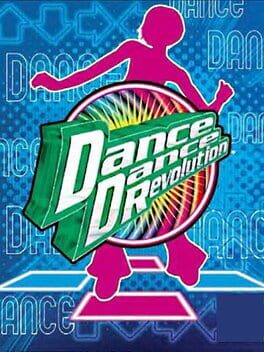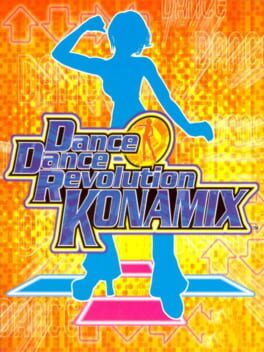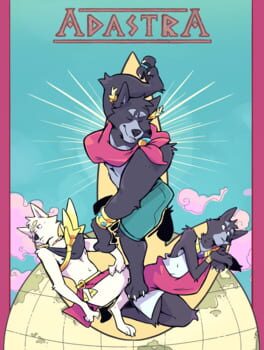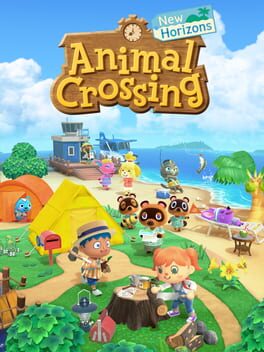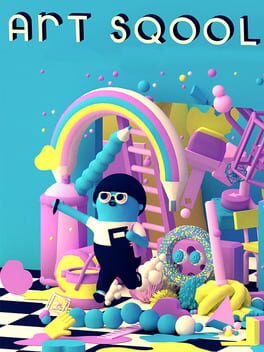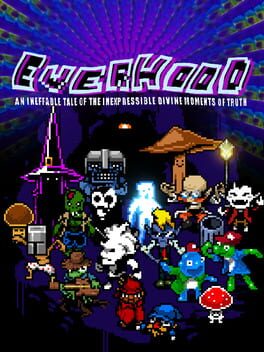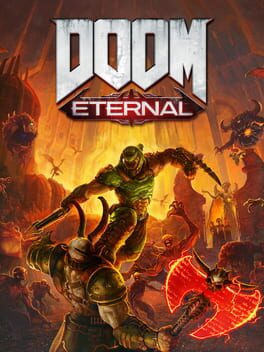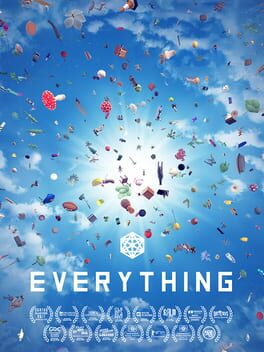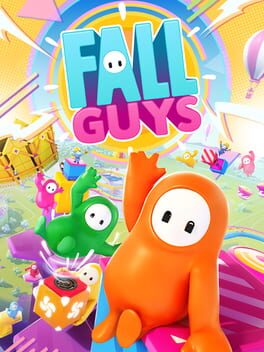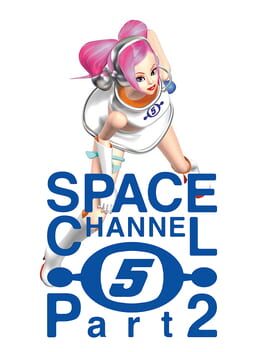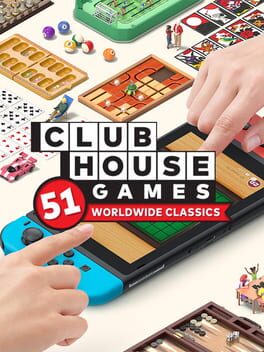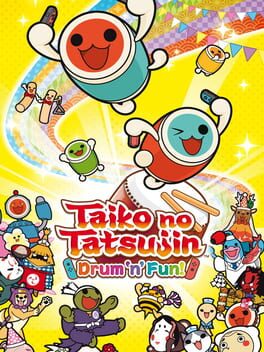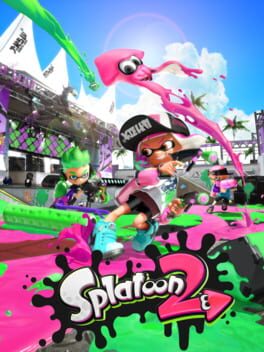kaijudave
[Thoughts on DDR, US Version]
This was a respectable introduction for the DDR franchise stateside. I won't deny that in comparison to later DDR titles this is a skeletal game in terms of content, yet they've kept the 90s charm and original music that made it so popular in Japan. Compiling the best hits from the 1st to the 3rd Mix in Japan and borrowing the UI of 3rd Mix, you get a no-nonsense look into what this dance game craze was about. While I would have liked a bigger song list and unlockables as incentive for playing, I still had a good time back when it came out and even playing it now.
This was a respectable introduction for the DDR franchise stateside. I won't deny that in comparison to later DDR titles this is a skeletal game in terms of content, yet they've kept the 90s charm and original music that made it so popular in Japan. Compiling the best hits from the 1st to the 3rd Mix in Japan and borrowing the UI of 3rd Mix, you get a no-nonsense look into what this dance game craze was about. While I would have liked a bigger song list and unlockables as incentive for playing, I still had a good time back when it came out and even playing it now.
A great home version of DDR for PS1 and definitely an improvement over the 1998 US release. The song list is a lot more interesting, focusing on Konami originals. The "playlist" format is also nicely curated. In terms of DDR entries on PlayStation, it gets so much better down the line obviously. While it accomplishes the bare minimum of a compilation trying to keep up with Japan's furious release schedule, I still had a good time unlocking the full song list and would consider this one of the more decent rhythm games of the PS1 era.
2018
It's great to see this visual novel mostly finished, as I had previously played when it still didn't have its true ending. I love the characters that Haps drew for this game, their personalities certainly shining through visually to heighten the in-game text. The special in-game art that would appear in certain scenes were a treat as well, especially the newly added ones for my second playthrough. While it's easy to expect stock images and music for visual novels like these, they served the story and setting enough to not be distracting. Though I can understand if the story doesn't appeal to everyone, I had a great time through my visit in Adastra and its grand space opera.
This was truly a fun time when it came out. I took full advantage of the online features, the plentiful decoration, the terraforming, and the eventual debt relief. I visited different friends' islands and do trades and bicker about the mundanity of our lives. Looking retrospectively, it heavily had the benefit of the pandemic for its success for sure. I don't think it would have been as fun otherwise, which is evident when you point out the bizarre lack of features from previous titles and frustrating mechanics that make the game a complete slog to explore. It's a game that clearly has its finishing touches coming in the form of a DLCs and updates, which is disappointing because I know I won't be playing this game as intensely when those updates roll out. I've had my fill of what AC:NH has to offer and may return to it from time to time, just because I like my villagers.
2019
I will give one nice compliment to Art Sqool and it is that it has good drawing prompts and provides excellent jumping points for drawing exercises. The game is otherwise not visually interesting enough to be the "canvas" to these prompts. The environment is rather dull and empty in a game that's supposed to inspire creativity. It does the very minimum to be a game, locking art tools that require exploration to unlock. Instead of going to Art Sqool, just use the prompts and go outside for your canvas.
2021
I had a conflicting time with this game. There's a lot of special things going on like the rhythm mechanics, the dizzying visuals, and its abstract storyline. I love the character designs and their personalities, and it's exciting to see that play into the battles as well. The large catalog of music is the star of the show however. You're never going to be left alone with the same tune. What brings it down for me is how very easy it is to write this off as an "Undertale clone." It doesn't help that some of the assets look exactly like it was pulled from the game. Seeing what the early concept art looked like for Everhood is also bittersweet, for the concept art looks much more original. The past can't be changed though, and what we have is a bit of a mess. I would recommend playing this regardless, for its ideas are strong enough even if I wished it could have transcended its influences.
2018
I am admittedly late to the party with Celeste, but I'm glad to have taken the journey. It's one of the most impressive platformers out there, with challenging sections that reward the player for their determination. That cycle of determination and failure also plays into the themes of the story, which is all about climbing that metaphorical and literal mountain that is holding you back. The progression you follow unfolds Madeline's characterization, as we discover her reasoning for climbing and the consequences that follow. It's a wonderful tale and an enthralling expedition to play through.
2020
I'm glad to call Doom my gateway to the FPS genre, even if Doom Eternal is not a traditional one in that sense. Progressing from the groundwork of Doom 2016, Eternal ramps up the speed and ferocity of your demon-killing rampage with some funky moves. The weapon-switching is challenging but incredibly rewarding once mastered. The secrets and map exploration are just as fulfilling. The storytelling isn't the main reason to play a Doom game, but there was a lot of effort put to give your demon hunting some purpose. Even the online portion of the game is a nice treat (though my PC struggles in that department). It's an all around solid game that is worth replaying.
2017
I like what this game is trying to do and it is a lot of fun for a couple hours, but Everything does feel like an interactable art installation rather than an outright "game." Of course, your general objective is to discover all the ways you can possess everything around you. Through that possession you toy with how different things and beings interact with each other. You listen to audio recordings from philosopher Alan Watts and these audio bits create thought exercises related to what you're doing. Your enjoyment of the game heavily depends on that appealing you, and I don't know if I'll ever want to finish this game when the objective isn't very fulfilling for me. I will say I respect what Everything is trying to accomplish and to give the game a bit of your time if anything I said sounded appealing.
2020
It's terribly easy to dismiss this game but I find it hard to think of any other game that takes the minigame competition concept to this level. When you've got cute beans, a colorful array of obstacle courses, and constant addition of content, it's hard to complain when the formula is this effective. The big kicker though is whether you're good at platformers in general, because Fall Guys rides and dies on that gameplay philosophy. There's no other activity available that isn't platforming, and progression through each season is dependent on a good performance. Given that it's an online game too, lag and internet connection can make each round frustrating to traverse. Otherwise, when everything's in order, it's comfort food for my tired-out body.
Space Channel 5 is one of the my favorite rhythm game franchises, bar none. I've sunk a ton of hours into both 1 and 2 despite being real short games. However, I grew up on the first game while I didn't get to play Part 2 until very later in life on Steam. I was fascinated to see the differences between both games. Part 2 is way more forgiving with the timing, has way more background animation going on, and introduces a lot of extra game modes and secrets. It's a grander and more sleek package compared to the original. I especially love the return of the original cast with the addition of new characters and villains you get to meet. This comes with some sacrifices, with the game not being as challenging even on the Extra Report missions. The voice acting is also awkward as it seems to use clips from different voice actors for the same character (correct me if I'm wrong on that but it's noticeable on the Steam version). Part 2 is also a hassle on Steam when the audio and game inputs don't synchronize. I would recommend the original console version for this one, but otherwise you're experiencing the game as intended.
2016
For as much as I love to meme this game and talk about how absurd the creation of Soda Drinker Pro is, it's not exactly fun to play if we're being serious. The comedy of seeing each poorly drawn world gets old when your movement is the speed of a dying cactus. The inclusion of Vivian Clark and the mystery behind it does allure me, but it too is ultimately not worth seeing to the end. I will compliment the soundtrack for this game, available to purchase on Steam. It's good background music. Treat Soda Drinker Pro as a fun, quirky game and you'll get a fun, quirky time.
I'm not usually one to care about "classic board games collection" games because it can be made cheaply. Yet here comes Clubhouse Games showing us all that you can in fact make an excellently curated selection of games from around the world. The online function is what really sold me and became a staple in my friend group due to how relatively timeless board games are. The only downside is that they made confusing choices with the online multiplayer where some games are limited regardless of game (eg, bowling limited to 2 players, Chinese checkers having no 3 player option, etc.). In terms of the general look, they lean into the cute human game pieces giving you a tour through the whole game and it's incredibly charming. They really want you to understand how to play every single game, and it's done so intuitively and with a lot of respect to the player. You can measure your mastery through each classic game through small challenges. The game progression even comes with fun trivia and cosmetic unlockables. Overall, I enjoyed this game way more than I had anticipated.
One of the few Taiko no Tatsujin games to make it to the West (along with the PS4 sister game), it presents the current state of the arcade game in its best form for home consoles. It's got quite a variety of songs at launch, with plenty of DLC to satiate the need for more. There's great party games that I enjoyed with friends, and the recent online mode is a plus for this version. I wish I could play it as often as other rhythm games but I am not the greatest with this one, nor do I care for the harsh difficulty spikes between modes. Still, it's been like this for the franchise for years so I can't really complain there. I would recommend this as a great entry into the franchise, and happy drumming to you if you're able to acquire the taiko accessory only available to Europe and Japan.
2017
While I may never get to experience the original Splatoon, the sequel offers roughly the same content with refined game mechanics and bigger personality. You won't be missing much unless you really care about the lore and various assets that didn't carry over. Online matches and team battles may be the name of the game, but most players will gravitate towards Salmon Run. It's one of the most interest modes in the game, where teamwork between online players against boss rushes can be exhilarating. The single player campaign is also a great introduction for players and continues the lore of the Splatoon franchise. As a mode however, it doesn't offer much reason to return past the first playthrough. Online matches can be arguably hit-or-miss as you can get stuck with awful players or young players who don't know what they're doing. Of course, let's not mention that you have to deal with spotty connection due to the NSO's lack of quality. Its friend system is also limiting if you don't have 3 friends at the ready, so it's a very underutilized function. Aside from aspects that are outside the game's control, its brimming personality gets your pumped to play every time and its slice of downtown keeps the vibes homey. Even after splatfests ended, I still found myself returning to this now and again. We'll see how its legacy continues on the third entry, but do enjoy this game while it's still relevant.
